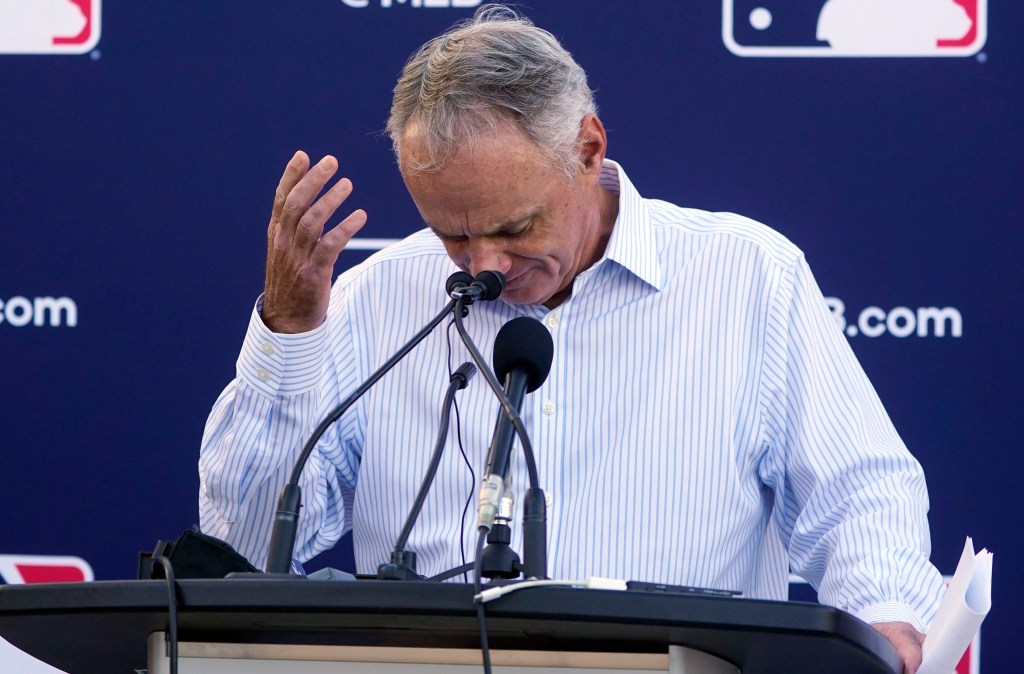Seven key issues for owners, players in MLB lockout talks
Contact The Author
On Tuesday, Major League Baseball commissioner Rob Manfred announced the cancellation of the first week of the 2022 regular season, which was scheduled to start on March 31, due to their inability to complete a new collective bargaining agreement with the players. Do you have some questions? Fortunately, we have some answers.
Q: The players and owners seemed to make some real progress these last couple of days, wrapping up nine days of bargaining at Roger Dean Chevrolet Stadium. Why did they stop negotiating?
A: Because the owners decided that, in the wake of the three-week “summer camp” following the 2020 COVID shutdown that resulted in a flurry of injuries, they want to run a four-week spring training at minimum. Three days are required to ratify an agreement. Do the math, and they desire a full month between an agreement and the opener. Hence their implementation of a deadline Monday that bled into Tuesday.
Q: Can the owners cancel games and players’ pay unilaterally?
A: The players contend that, while their adversarial partners are entitled to cancel games, they cannot deprive their top talents of their salaries in a similar fashion. The players’ pay structure and total in this shortened season must be collectively bargained.

Q: Must the season be shortened? What if they reach an agreement in a week? Couldn’t they just throw this first week on the back end of the regular season and postpone the playoffs by a week?
A: That is precisely what they did in 2001 following the Sept. 11 terrorist attacks, so we know it can be done. However, MLB’s broadcast partners, particularly Fox, has made clear its preference for not airing the baseball playoffs too far into November.
Q: How likely is it that a deal could be finished in a week?
A: That sounds a little quick given the disappointment and ill will that emerged Tuesday. However, the truth is that both sides entered the “reasonable” area over the last four days, the players arriving there first. If they can get out of their own ways, absolutely no guarantee, and return to the table within the next week, then they can find common ground this month.
Q: Who deserves more blame for this?
A: The owners do because it was their leader, Manfred, who instituted a lockout on Dec. 2 and then oversaw a stunning six weeks without a single substantive negotiation.
Q: What’s the thorniest issue that needs resolution?
A: It still has to be the competitive-balance tax, despite significant movement occurring in Jupiter. The owners’ final-year luxury-tax threshold, $230 million for 2026, doesn’t match the players’ first-year number, $238 million for 2022. It helps that the teams lowered the tax rates to the level from the 2016 CBA and eliminated the tougher, non-financial penalties (draft picks).
Q: Who gets hurt the most from this?
A: Besides the obvious folks like the fans, stadium workers and business owners near ballparks, it has to be Manfred and his MLB Players Association equivalent Tony Clark, neither of whom distinguished himself when it comes to maintaining good relationships with the other side. We all saw this storm coming for a good four years now and neither one did enough to prevent it. They are both paying the price.